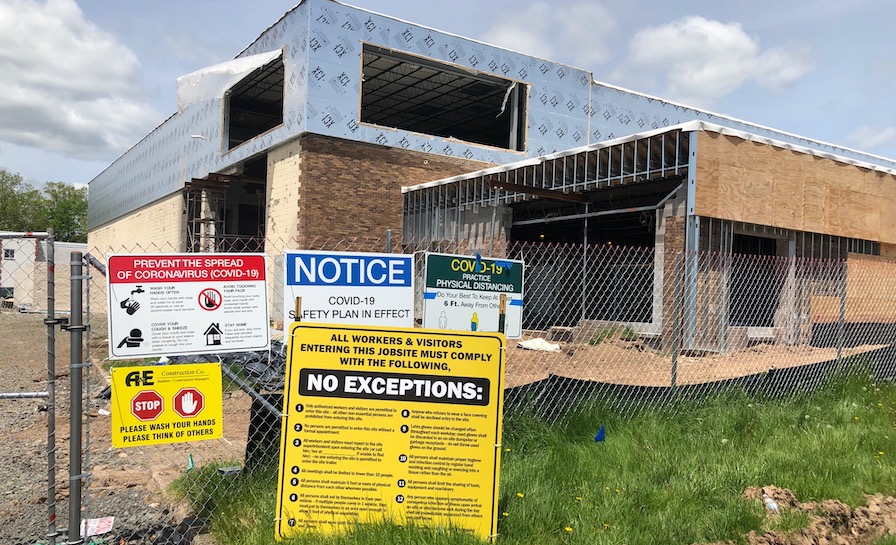Studies by key union specialty contractors indicate that COVID-19 has turned their projects into money-losers and that firms must seek and receive additional payment via change orders to prevent a wave of company failures.
The consecutive surveys, published in May and late July, averaged the pandemic cost effect on scores of electrical, sheet metal, HVAC and mechanical contractors, finding about an 18% pandemic-related impact from reduced productivity and added expenses.
Survey results and commentary by the research firm, Englewood, Colo.-based Maxim Consulting Group, suggest 18% both as a potential figure for a price adjustment on current projects and an increase in any future work in those trades.
Whether general contractors will agree to those amounts and seek them from owners is another matter. Attorneys and construction consultants have been warning for months that the pandemic could trigger a wave of cost-related lawsuits and company failures.
But the specialty contractor associations that paid for the research also offered to members, and for sale to nonmembers, a “change order calculation” tool to help build a case for extra payment and adjustments.
Two key union contractor associations, the National Electrical Contractors Association and the Sheet Metal and Air-Conditioning National Contractors Association, and their related foundations, funded the research and promoted it to their members.
The issue was framed as a matter of fairness considering the unforeseen pandemic emergency, on a par with other forms of relief created by the federal government.
Dan Doyon, a director of Maxim Consulting Group, said fixed price contracts provide for little if any relief in such circumstances.
Since construction is considered essential, contractors that remain working during the pandemic are “caught in the middle ground,” said Doyon in the May presentation on electrical work.
“The government has tried to do its part, but it is not enough and cannot be the end of the support provided to corporations across this country.”
Brian Lightner, another director of Maxim, estimated the average productivity loss by electrical contractors at 7% for mitigating the pandemic impact. An additional loss of 12.4% was attributed to other related impacts on vertical construction productivity, such as absent workers or delays at the gate.
For sheet metal, HVAC and mechanical contractors, the initial productivity impact averaged 9.2%, with another 8.7% loss from mitigating the direct impact of the coronavirus.
The impacts included extra mobilizations and demobilizations, work fatigue from anxiety, absenteeism, social distancing effects, off-shift work, altered delivery and material reception, inspections and cleaning.
In an eight-hour workday, 85 minutes of worktime was lost, the research found.
“Contractors need to consider seriously the impact on their profitability and seek equitable adjustments,” said Doyon.
Otherwise, construction companies will fail at a lagging rate because of the impact, he said.






Post a comment to this article
Report Abusive Comment